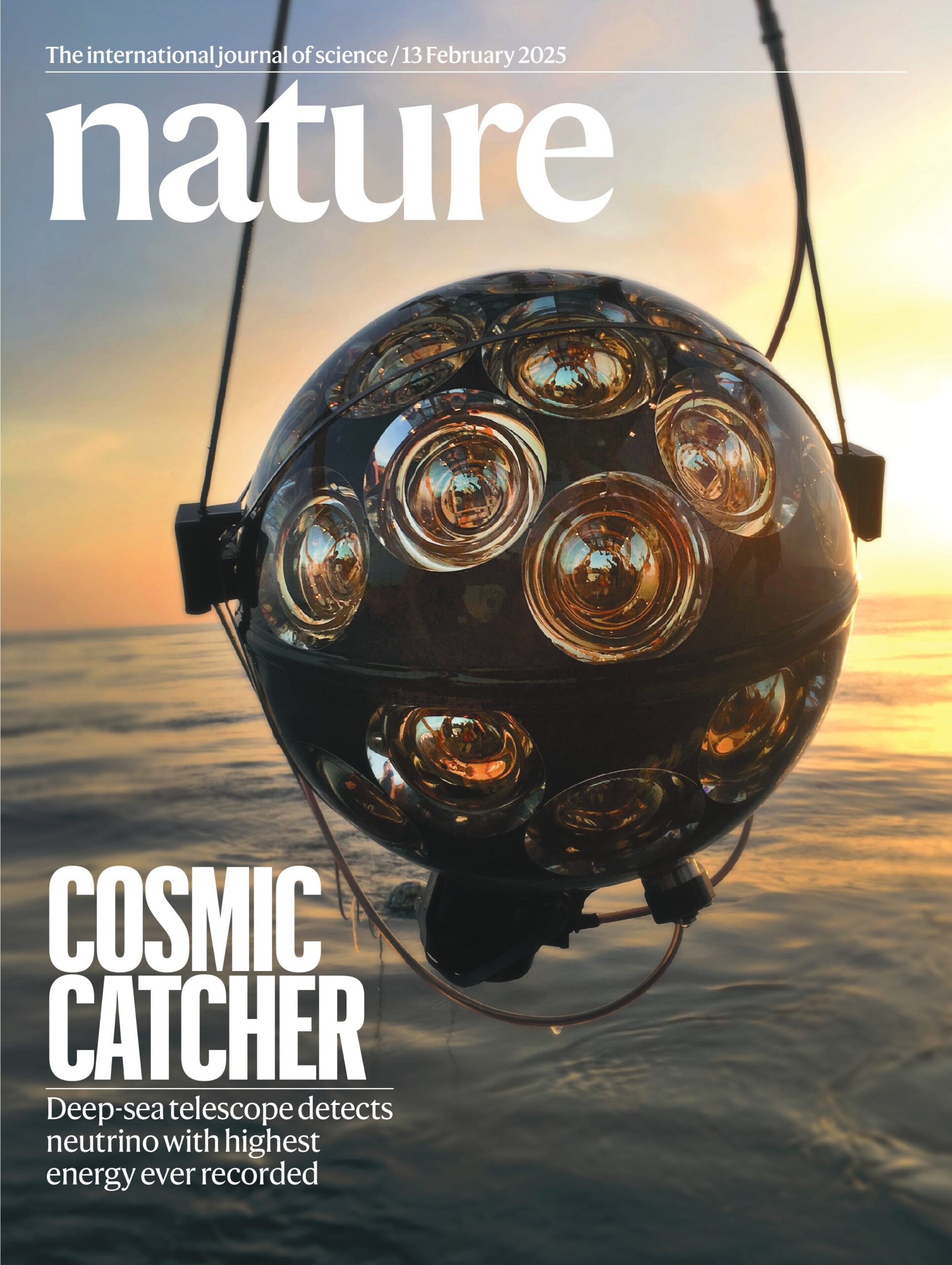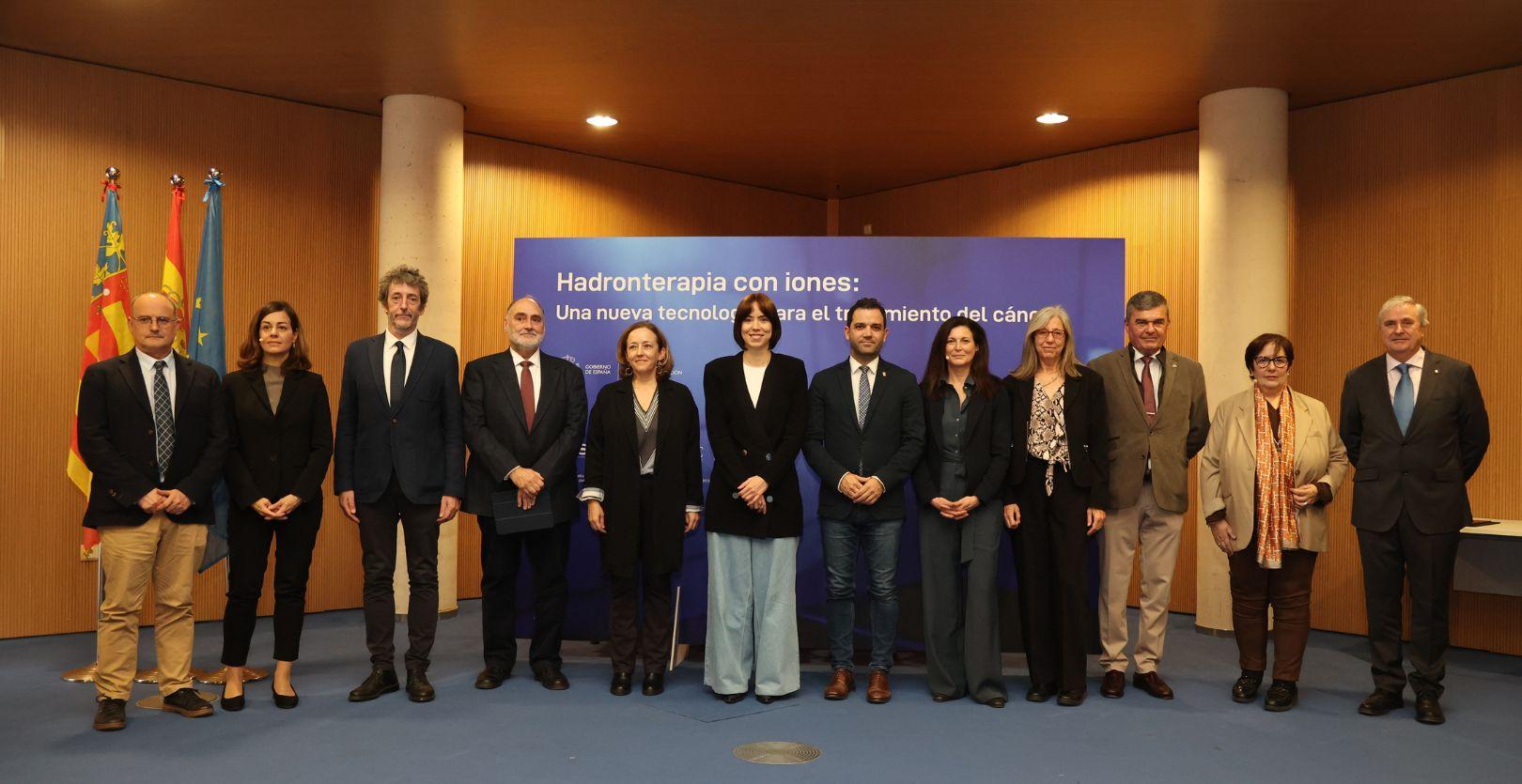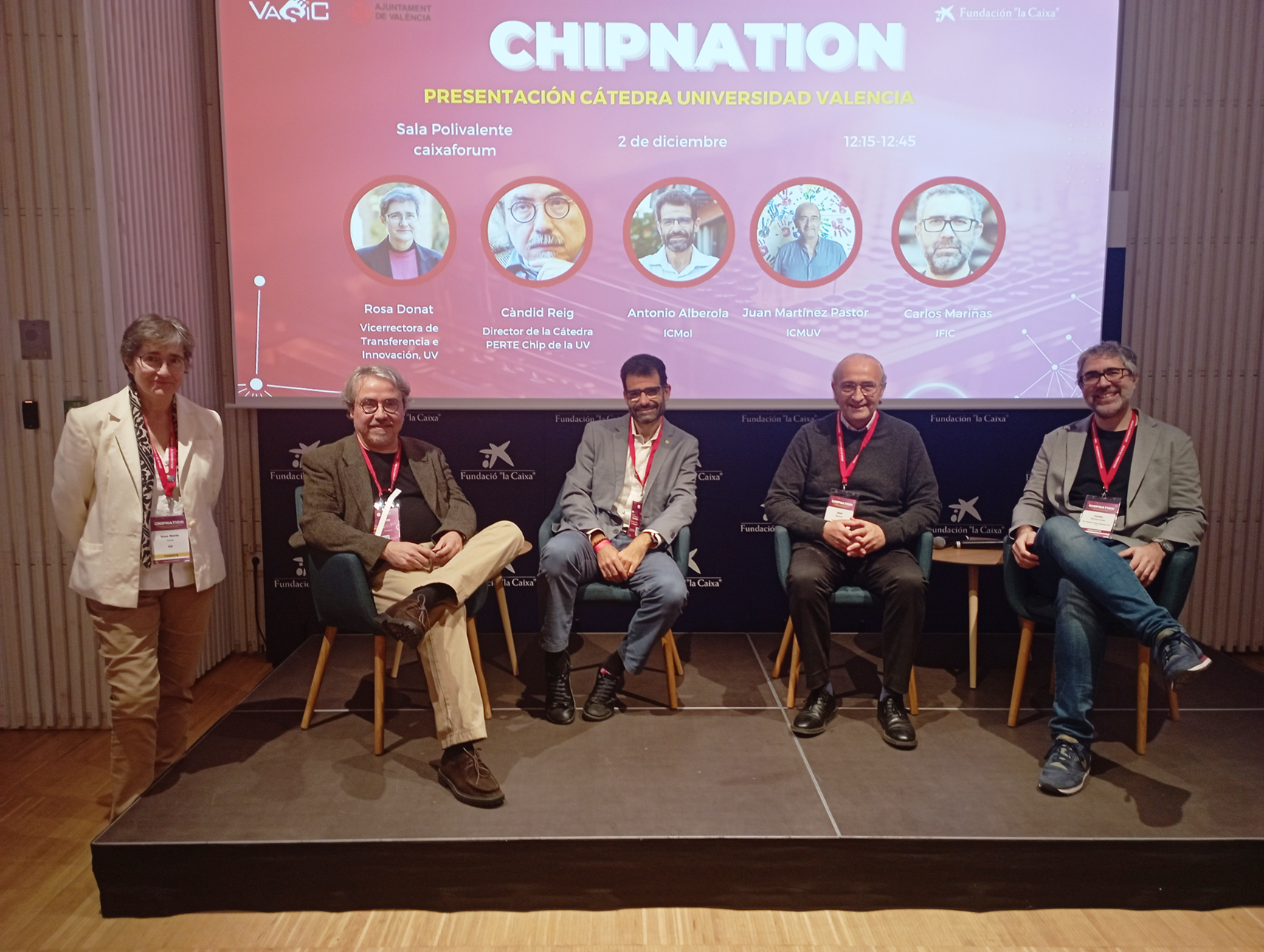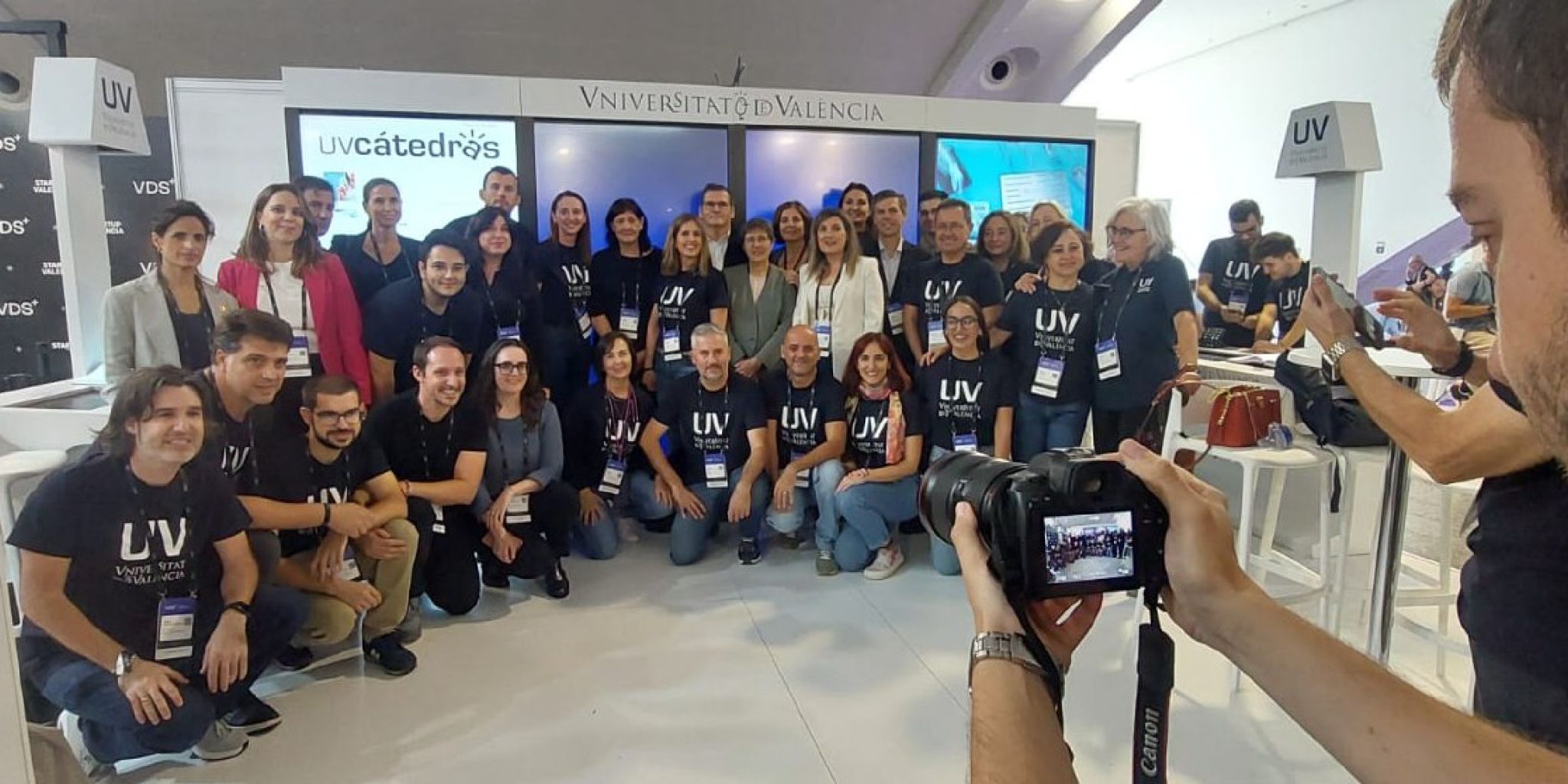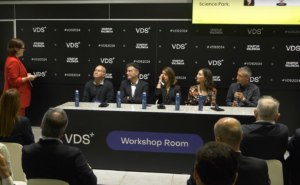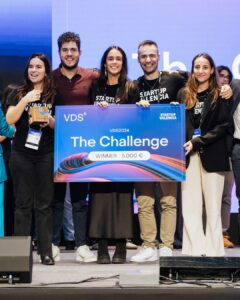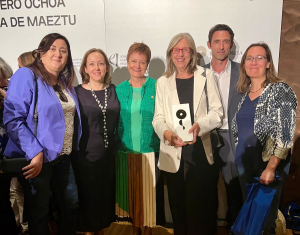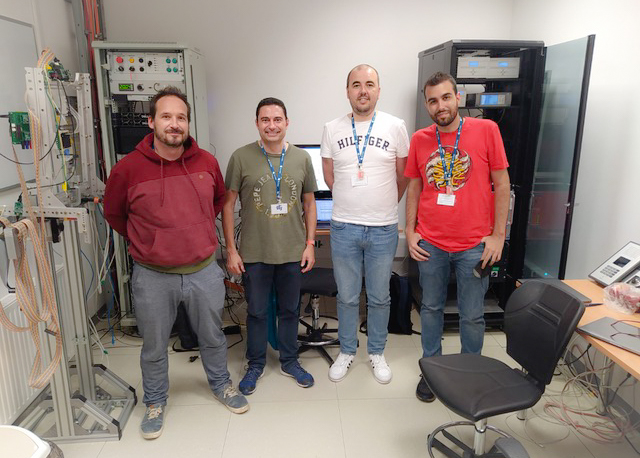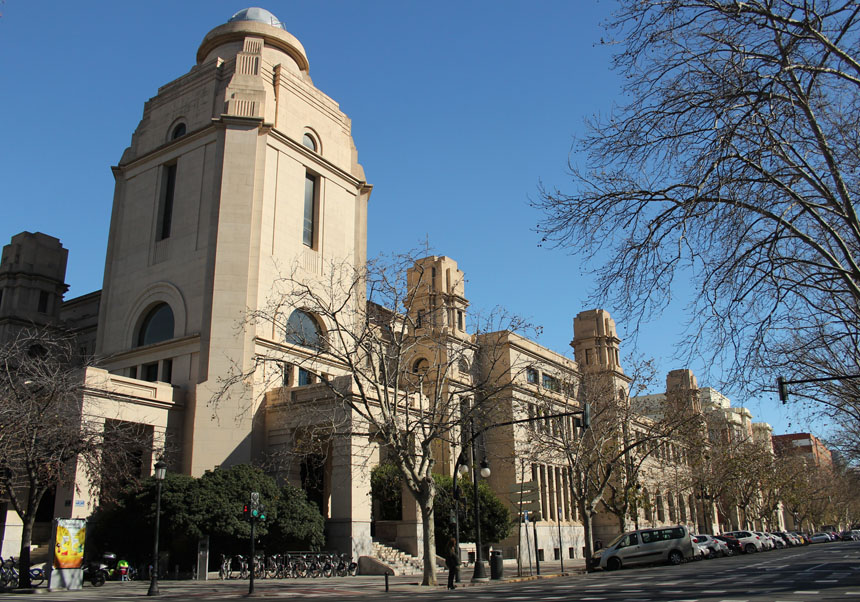On Wednesday, February 12, 2025, an international collaboration involving the CSIC reported in Nature the detection of the highest-energy neutrino observed to date, captured by the KM3NeT detector, submerged in the Mediterranean Sea. This elusive elementary particle is extremely difficult to observe and of unknown origin. The discovery highlights the potential of this experiment to study the cosmos through neutrinos, the second most abundant particle in the universe after photons.
This significant discovery, featured on the cover of the prestigious scientific journal, provides the first evidence that neutrinos of such high energies are produced in the universe, although their origin remains unknown. Several Spanish scientific groups participate in KM3NeT, including the Institute of Corpuscular Physics (IFIC), a joint center of the Spanish National Research Council (CSIC) and the University of Valencia, as well as the Joint Unit of the Spanish Institute of Oceanography of the CSIC and the Polytechnic University of Valencia.
On February 13, 2023, the ARCA detector of the KM3NeT underwater neutrino telescope detected an extraordinary event associated with a neutrino with an estimated energy of about 220 PeV (220,000 trillion electronvolts, far exceeding the particles produced by CERN’s LHC). This event, named KM3-230213A, refers to the most energetic neutrino ever observed and provides the first evidence that neutrinos of such high energies are produced in the universe. After a long and meticulous process of data analysis and interpretation, the KM3NeT collaboration is now sharing details of this unprecedented discovery in an article published in Nature.
The detected event was identified as a muon (an elementary particle related to the electron) that traversed the entire detector, triggering signals in more than a third of the sensors. The inclination of its trajectory, along with its enormous energy, provides compelling evidence that the muon originated from a cosmic neutrino interacting near the detector.
“KM3NeT has begun to explore an energy and sensitivity range where detected neutrinos can be produced in extreme astrophysical phenomena. This first detection of a neutrino in the hundreds of PeV range opens a new chapter in neutrino astronomy and a new observational window into the universe,” says Paschal Coyle, KM3NeT spokesperson at the time of detection and researcher at the IN2P3/CNRS Particle Physics Center in Marseille, France.
Neutrinos: The most mysterious elementary particles
The high-energy universe is the domain of colossal events such as supermassive black holes, supernova explosions, and gamma-ray bursts—phenomena that remain only partially understood. These powerful cosmic accelerators generate streams of particles known as cosmic rays, which can interact with surrounding matter to produce neutrinos and photons. As they travel through the universe, the most energetic cosmic rays can interact with photons from the cosmic microwave background radiation—the first light after the birth of the cosmos—creating extremely energetic neutrinos known as cosmogenic neutrinos.
“Neutrinos are among the most mysterious elementary particles. They have no electric charge, almost no mass, and interact only weakly with matter. They are special cosmic messengers that provide us with unique information about the mechanisms involved in the most energetic phenomena and allow us to explore the farthest reaches of the universe,” explains Rosa Coniglione, deputy spokesperson of KM3NeT at the time of detection and researcher at Italy’s National Institute for Nuclear Physics (INFN).
Although neutrinos are the second most abundant particle in the universe—surpassed only by the photons that make up light—their extremely weak interaction with matter makes them incredibly difficult to detect, requiring massive detectors. The KM3NeT neutrino telescope, currently under construction, is a vast deep-sea infrastructure consisting of two detectors, ARCA and ORCA. KM3NeT uses seawater as an interaction medium to detect neutrinos. Its high-tech optical modules capture Cherenkov light, a bluish glow produced when ultrarelativistic particles, resulting from neutrino interactions, propagate through water.
This ultra-high-energy neutrino could have originated directly from a powerful cosmic accelerator. Alternatively, it might be the first detection of a cosmogenic neutrino. However, based on a single neutrino, it is difficult to draw conclusions about its origin, as the scientists in the collaboration point out. Future observations will focus on detecting more such events to build a clearer picture. The ongoing expansion of KM3NeT with additional detection units and the acquisition of new data will enhance its sensitivity and increase its ability to identify cosmic neutrino sources, establishing KM3NeT as a key player in multimessenger astronomy.
Spanish contribution at KM3NeT
The KM3NeT collaboration brings together more than 360 scientists, engineers, technicians, and students from 68 institutions across 22 countries worldwide. In Spain, participating institutions include the Institute of Corpuscular Physics (IFIC), a joint center of the CSIC and the University of Valencia; the Joint Unit of the Spanish Institute of Oceanography (IEO) of the CSIC and the Polytechnic University of Valencia (UPV); the IGIC of the Polytechnic University of Valencia; the University of Granada; and the LAB of the Polytechnic University of Catalonia.
Spanish participation in neutrino telescopes began three decades ago when a small group of researchers from IFIC joined the initiative to build the first underwater neutrino telescope, ANTARES, which started collecting data in the mid-2000s. Juan José Hernández Rey, CSIC research professor at IFIC and deputy spokesperson for ANTARES during its construction and initial operation, recalls: “At that time, the technical feasibility of installing such an instrument on the seabed was still unproven. The only previous attempt, a U.S. project, was ultimately canceled.” ANTARES, which operated for 16 years before being recently dismantled, paved the way for future projects.
Shortly after ANTARES became operational, the design of an even larger telescope, KM3NeT, began. Currently in the installation phase, KM3NeT is already capable of collecting data in its partial configuration. “The Spanish groups within KM3NeT, in addition to contributing to the construction of several telescope components, cover various research areas: multimessenger astronomy, dark matter searches, neutrino oscillation studies, and the search for new physics through neutrinos,” explains Professor Juan de Dios Zornoza Gómez of the University of Valencia, coordinator of the Spanish groups in KM3NeT. “We are also working on understanding the implications of this extraordinary event and deepening our knowledge of it.”
The participation of Spanish groups in KM3NeT is funded by various programs from the Ministry of Science, Innovation, and Universities, as well as European and regional programs (Generalitat Valenciana and Junta de Andalucía). The CSIC’s active contribution to KM3NeT reflects Spain’s strong commitment to advancing scientific research and technological development of large international infraestructures.
Neutrino Astronomy
The field of neutrino astronomy is rapidly expanding, and Spanish researchers are confident that, with the full installation of KM3NeT’s two detectors, ARCA and ORCA, new light will be shed on the mystery of the origin of cosmic neutrinos. “Determining the direction and energy of this neutrino required precise calibration of the telescope and sophisticated track reconstruction algorithms. Moreover, this extraordinary detection was achieved with only one-tenth of the detector’s final configuration, demonstrating the great potential of our experiment for neutrino studies and neutrino astronomy,” says Aart Heijboer, KM3NeT’s Physics and Software Coordinator at the time of detection and a researcher at the National Institute for Subatomic Physics (Nikhef) in the Netherlands.
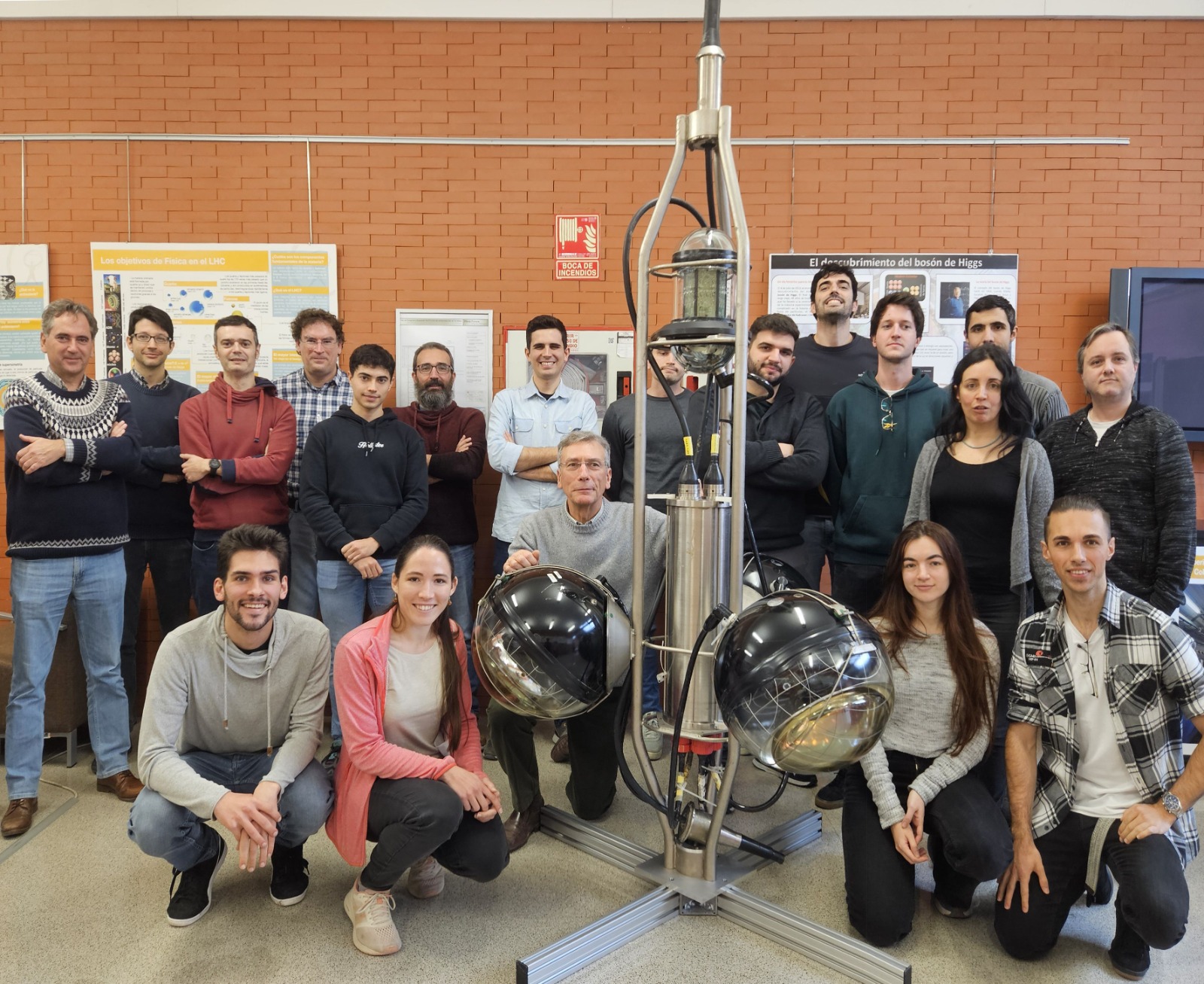
Members of VEGA, alongside one of the elementes of ANTARES detector, the predecessor of KM3NeT. From left to right, back: Juan Zúñiga, David Calvo, Francisco Salesa, Diego Real, Mario Manzaneda, Juan de Dios Zornoza, Juan Palacios, Adrian Saina, Emilio Pastor, Alfonso García, Alfonso Lazo, Rebecca Gozzini, Vincent Cecchini, Agustín Sánchez; Front: Jorge Prado, Nadja Lessing, Juan José Hernández, Adriana Bariego, Sergio Alves.
References:
The KM3NeT Collaboration. Observation of an ultra-high-energy cosmic neutrino with KM3NeT. Nature, 2025. DOI: 10.1038/s41586-024-08543-1
Download Material (photos, vídeos, infographics): https://saco.csic.es/s/QHdMoSJB8oDgpAf

